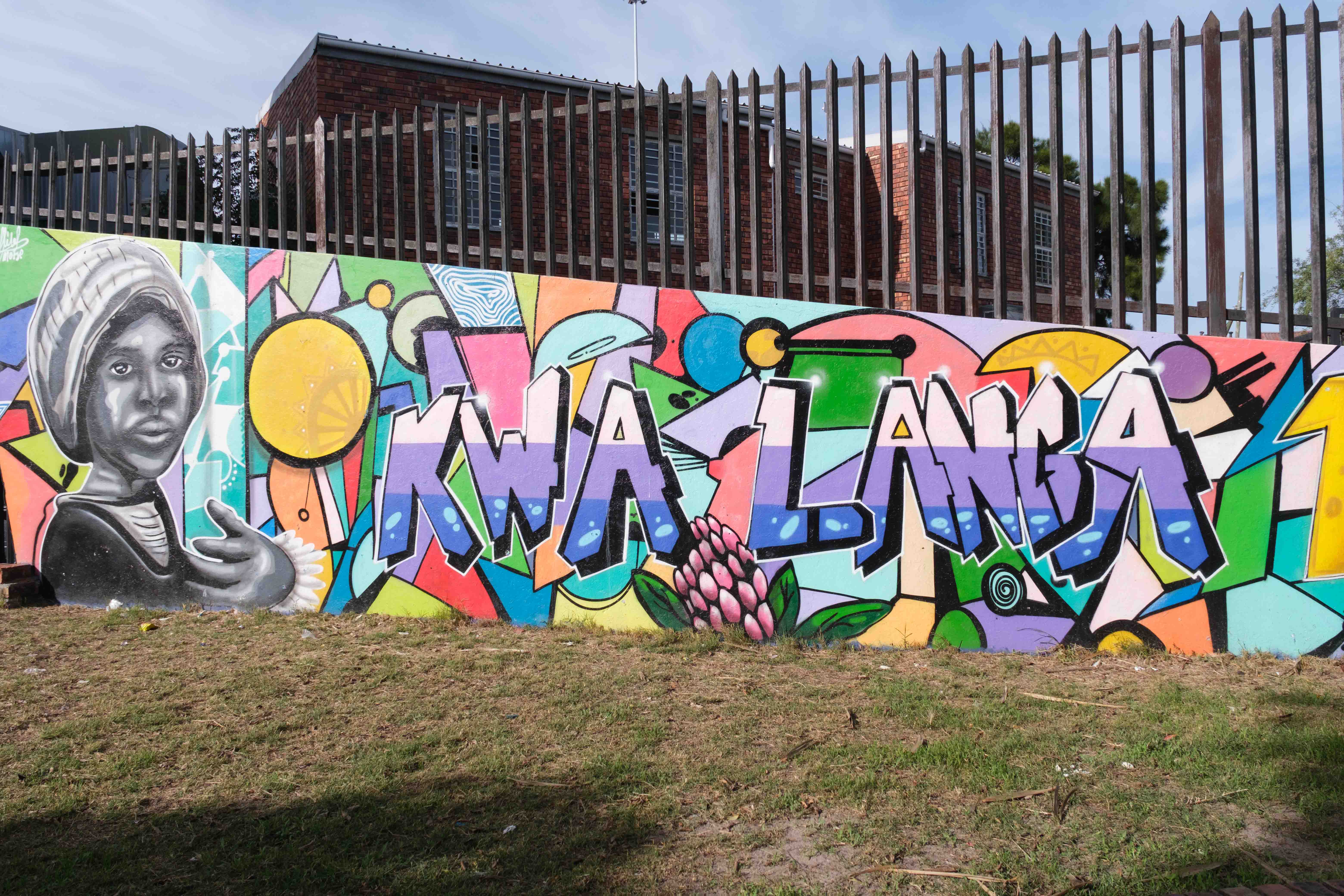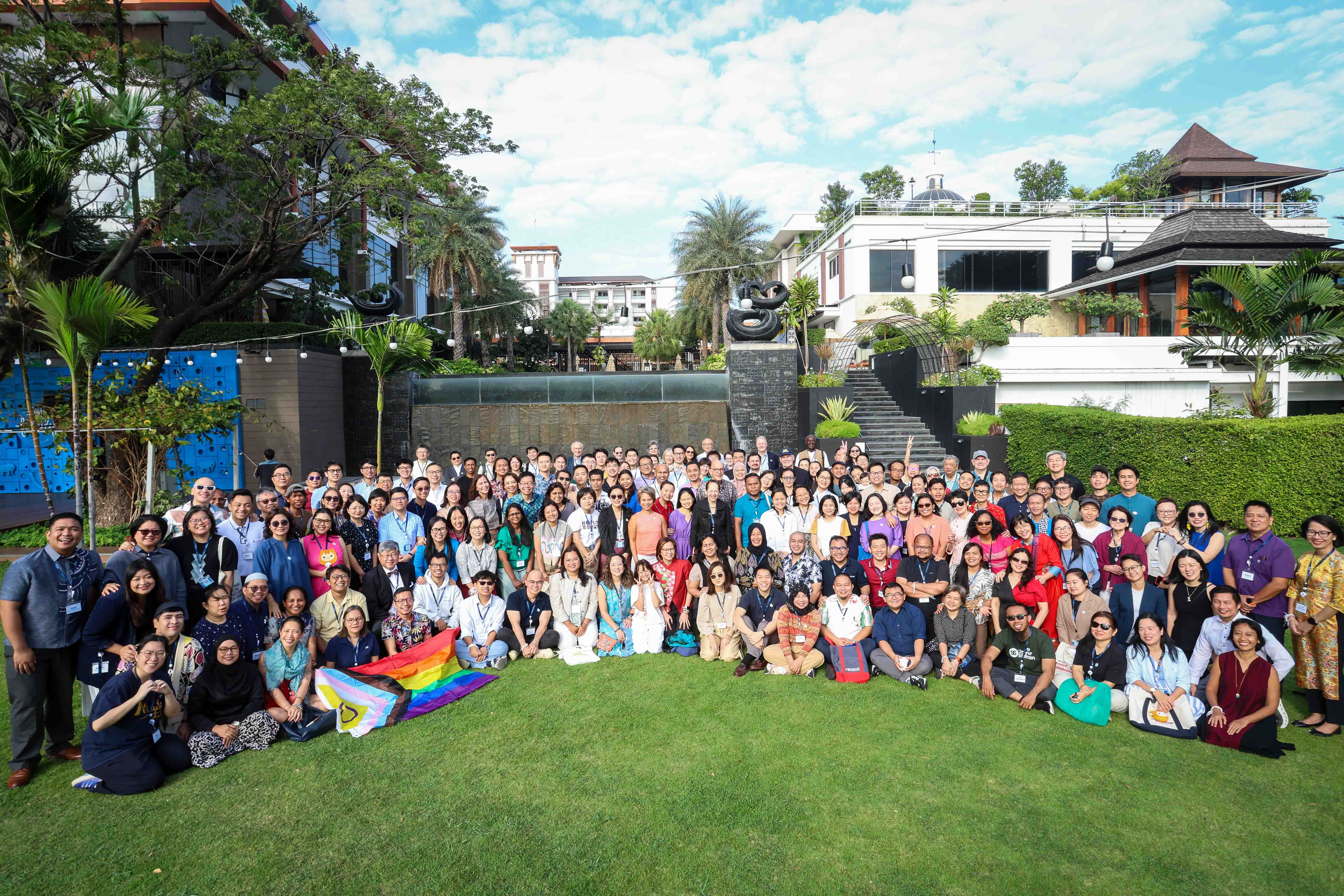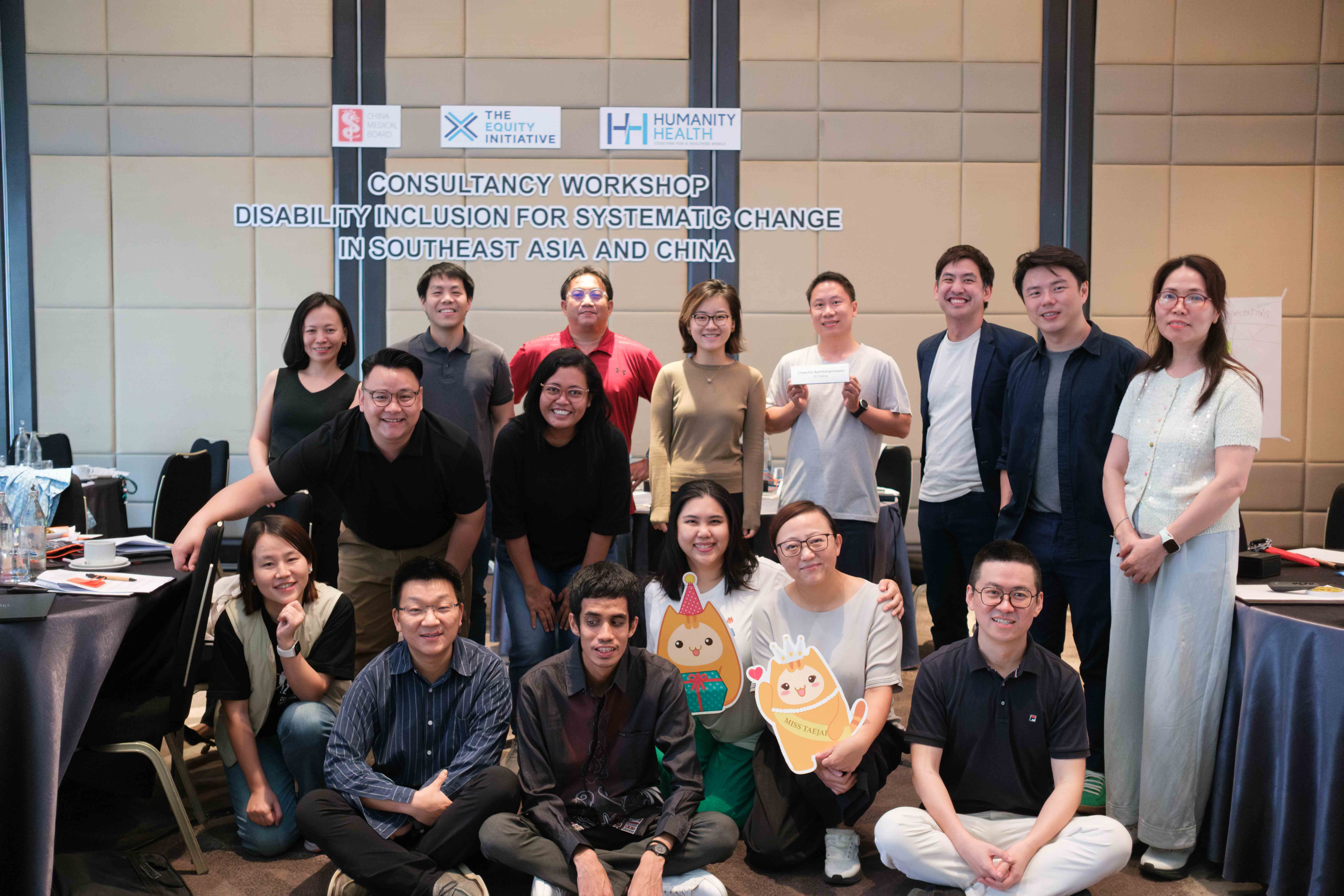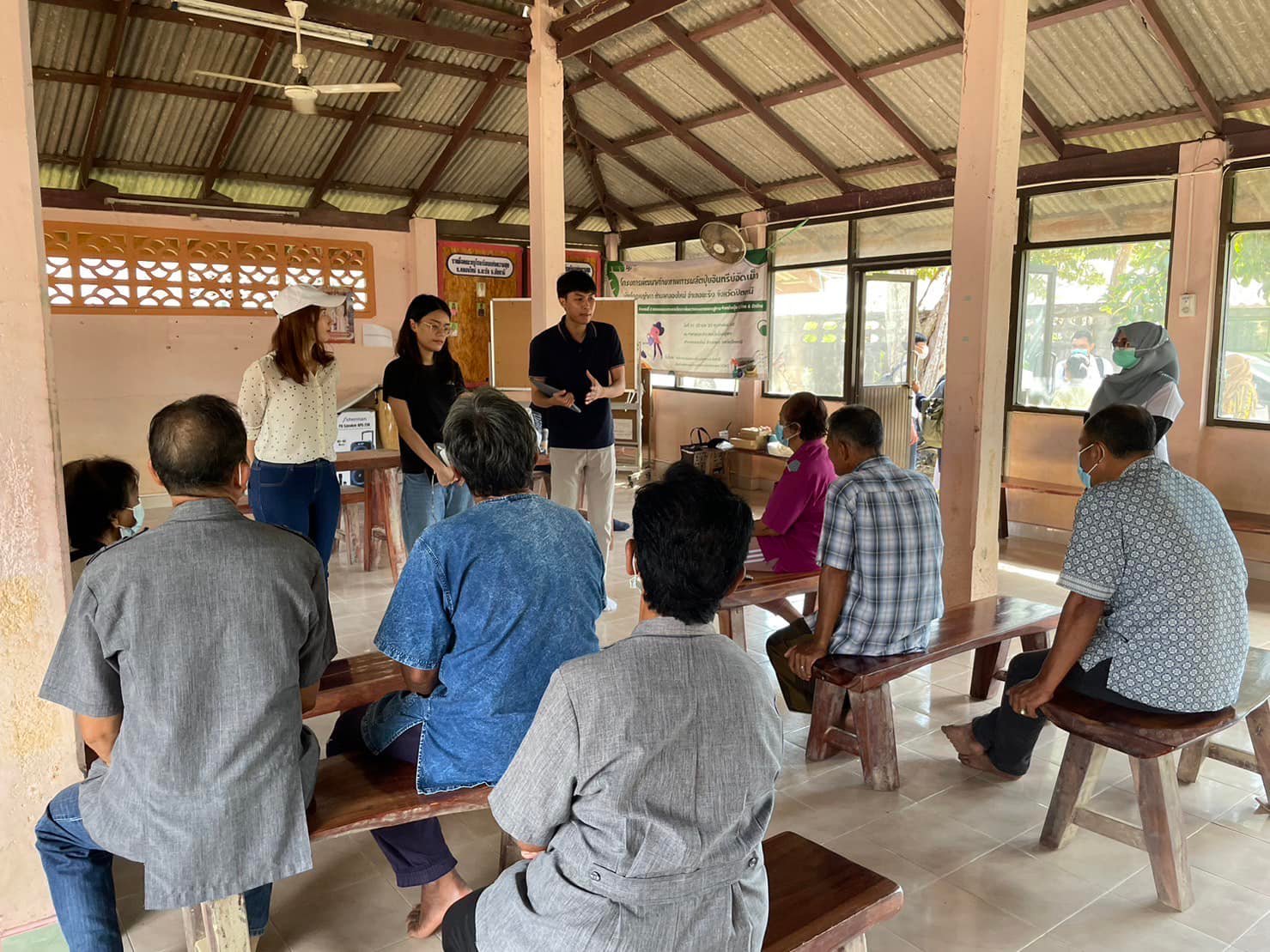Global Learning I: Perspective Through a Cape Town Lens
As health systems around the world confront persistent disparities, cross-regional learning offers a critical opportunity to examine how different societies address complex equity challenges. From May 4-10, 2025, the Equity Initiative convened its Global Learning I learning event in Cape Town, South Africa—a setting where the legacy of apartheid continues to influence public life and where communities are actively working to reshape access to health and social well-being.
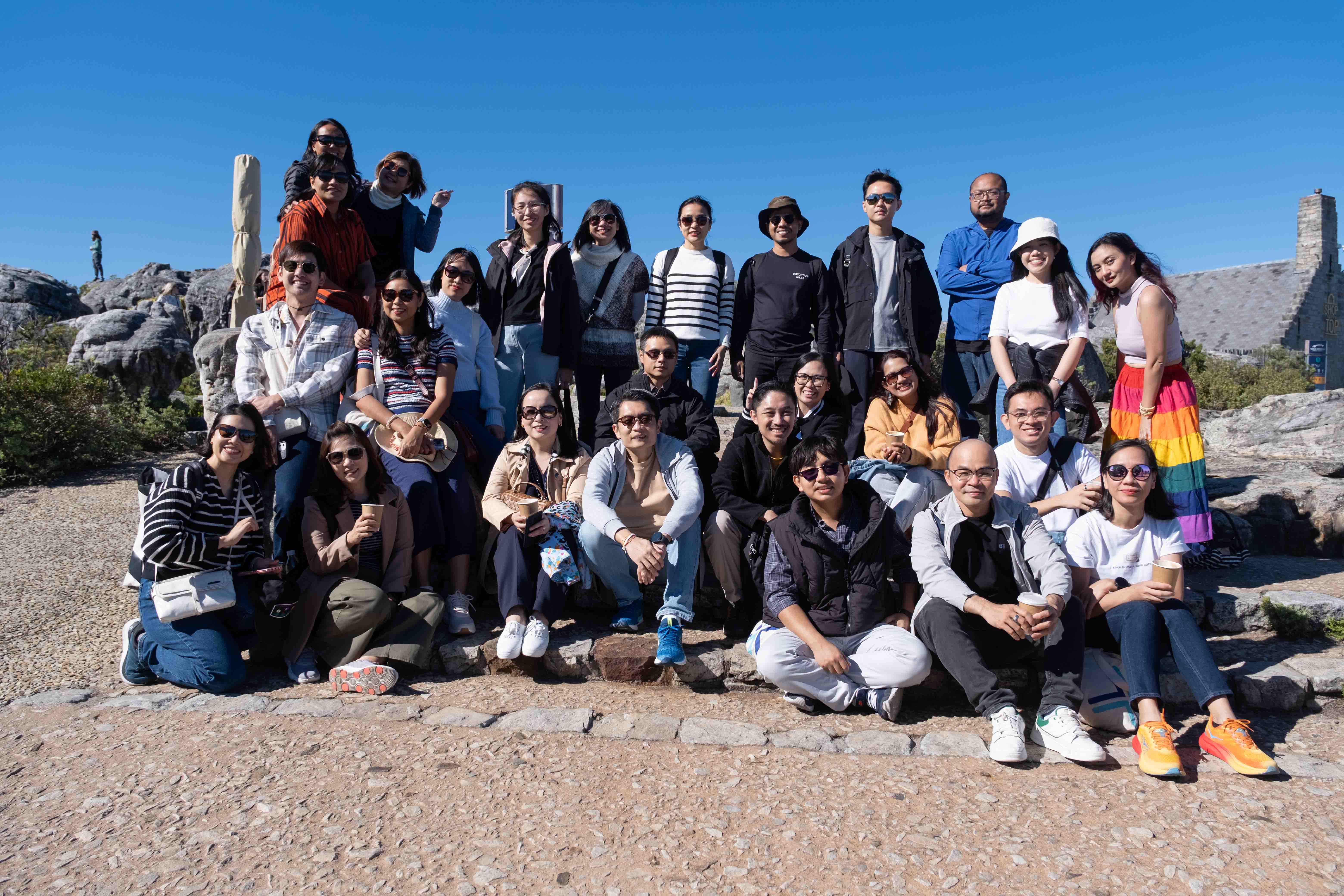
Global Learning I exemplifies the power of taking Fellows out of their familiar settings to examine structural issues of inequity through experiential learning, using a social determinants approach, while also fostering community by encouraging Fellows to travel, face challenges, and learn together. Over the course of the week, Fellows engaged with a range of local actors to explore how context, history, and community leadership inform efforts to advance equity.
The program began with a contextual overview led by Associate Professor Tracey Naledi. Dr. Naledi addressed the Fellows’ expectations for the trip and shared her insights on South Africa’s socio-political and economic development. These sessions outlined the structural foundations of South Africa’s political transition and examined how historical injustices have shaped its public institutions. Fellows were invited to reflect on how South Africa’s post-apartheid trajectory offers both parallels and contrasts to developments in their own countries, particularly in relation to policy reform and service delivery.
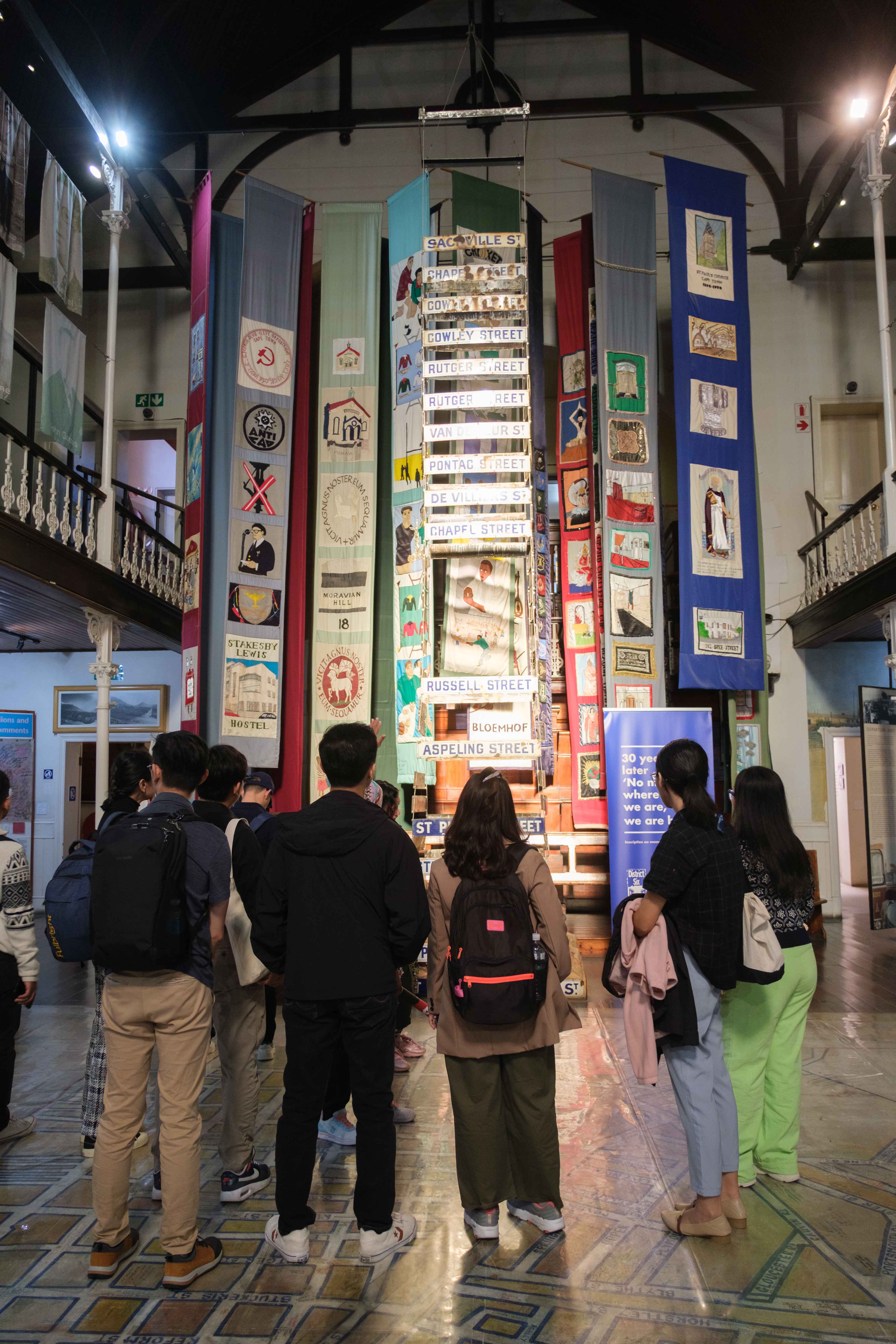
Site visits across Cape Town reinforced the value of learning through place. At the District Six Museum, Fellows encountered the legacy of forced removals and urban displacement. Nur Syarif Ramadhan (2025, Indonesia) reflected, “One of my favorite activities was visiting the Slave Lodge and District Six Museum. I found these places deeply meaningful—especially because I discovered unexpected historical connections between Indonesia and South Africa. Many enslaved people brought to the Cape during Dutch colonial rule came from Southeast Asia, particularly Indonesia. Seeing references to places like Batavia, Makassar (where I am from), and the names of enslaved individuals who were Muslim and of Malay origin gave me a strange but profound sense of recognition—as if part of my own ancestry and cultural memory lived there too.”
A group walk through Bo-Kaap offered insight into the layered cultural histories that continue to define the city’s identity. These experiences emphasized that questions of equity are inseparable from geography, memory, and the social dynamics embedded in physical environments.
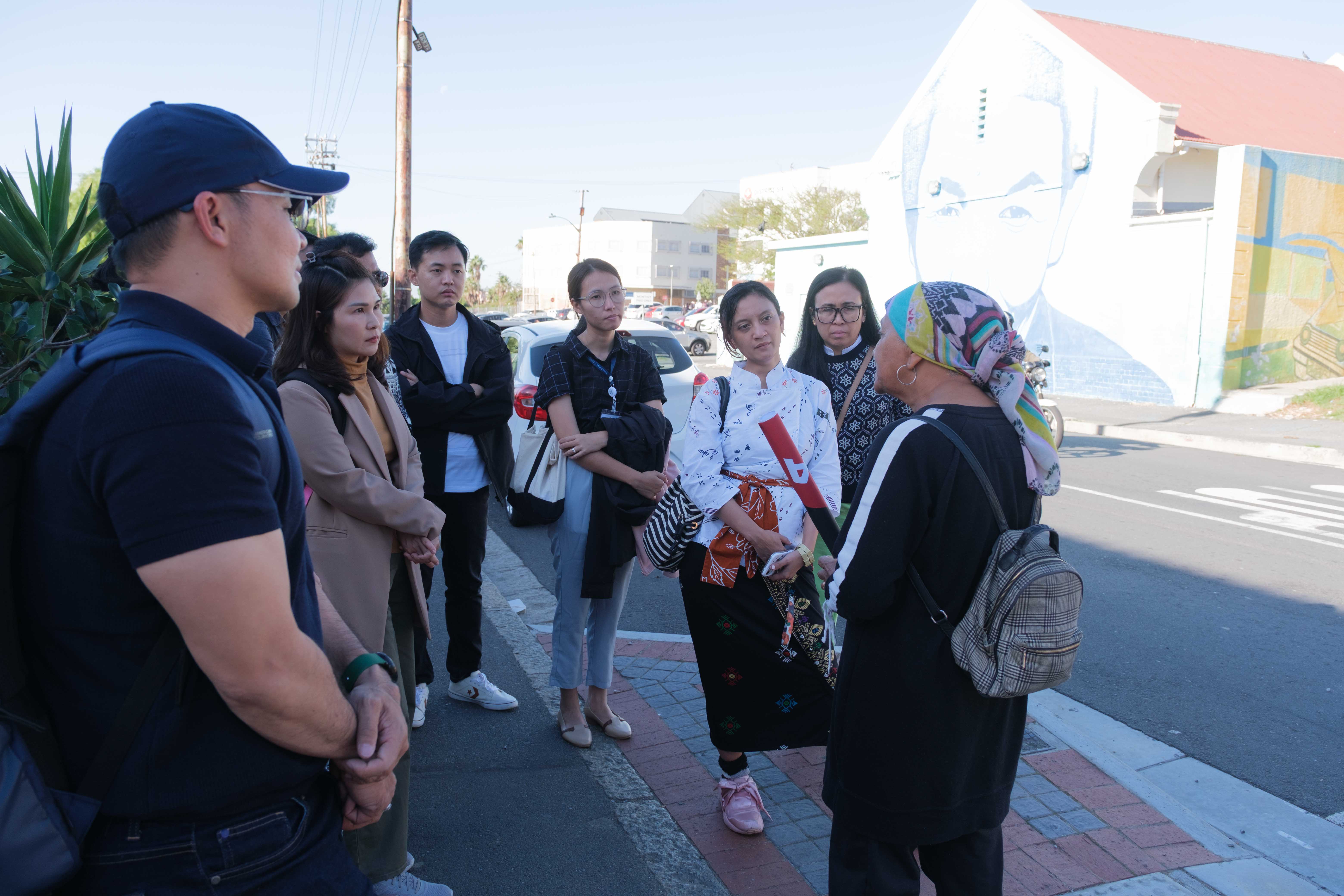
A central component of the immersive experience was with the local community of Langa where Fellows engaged with community-led initiatives showing the community’s ingenuity and innovation. At the Langa Bicycle Hub, for example, mobility has become a platform for opportunity and connection. A nearby garden, once an informal dumping ground, now supports food security and community cohesion. Fellows also visited the Dompas Museum and Hamilton Naki Heritage Site, both of which reflect the tension between acknowledging pain of the past. and forging forward toward the future in post-apartheid South Africa. “Going through District Six and Langa Town… To explore the place, alongside stories from people that actually lived its history, was such a privilege. The communities’ continuing to fight against indifference and injustice up to now is just as inspiring,” said Christian Nuevo (2025, Philippines).
Smaller group visits allowed for deeper engagement with local organizations. At Kheth’Impilo, Fellows explored approaches to health system strengthening grounded in community participation. Those visiting Langa Community Advice Services examined how legal empowerment can expand access to basic rights. Another group observed informal enterprise and youth engagement at Rank Tshisa Nyama. These sessions encouraged Fellows to consider how localized strategies can inform broader structural change.
Throughout the day in Langa, the emphasis was not on observation alone but on thoughtful engagement. The visit underscored the importance of relational leadership—grounded in trust, accountability, and ongoing dialogue with communities most affected by inequity. Despite this, one of the highlights of the week was the local food cooked in Langa- the best food from the entire trip!
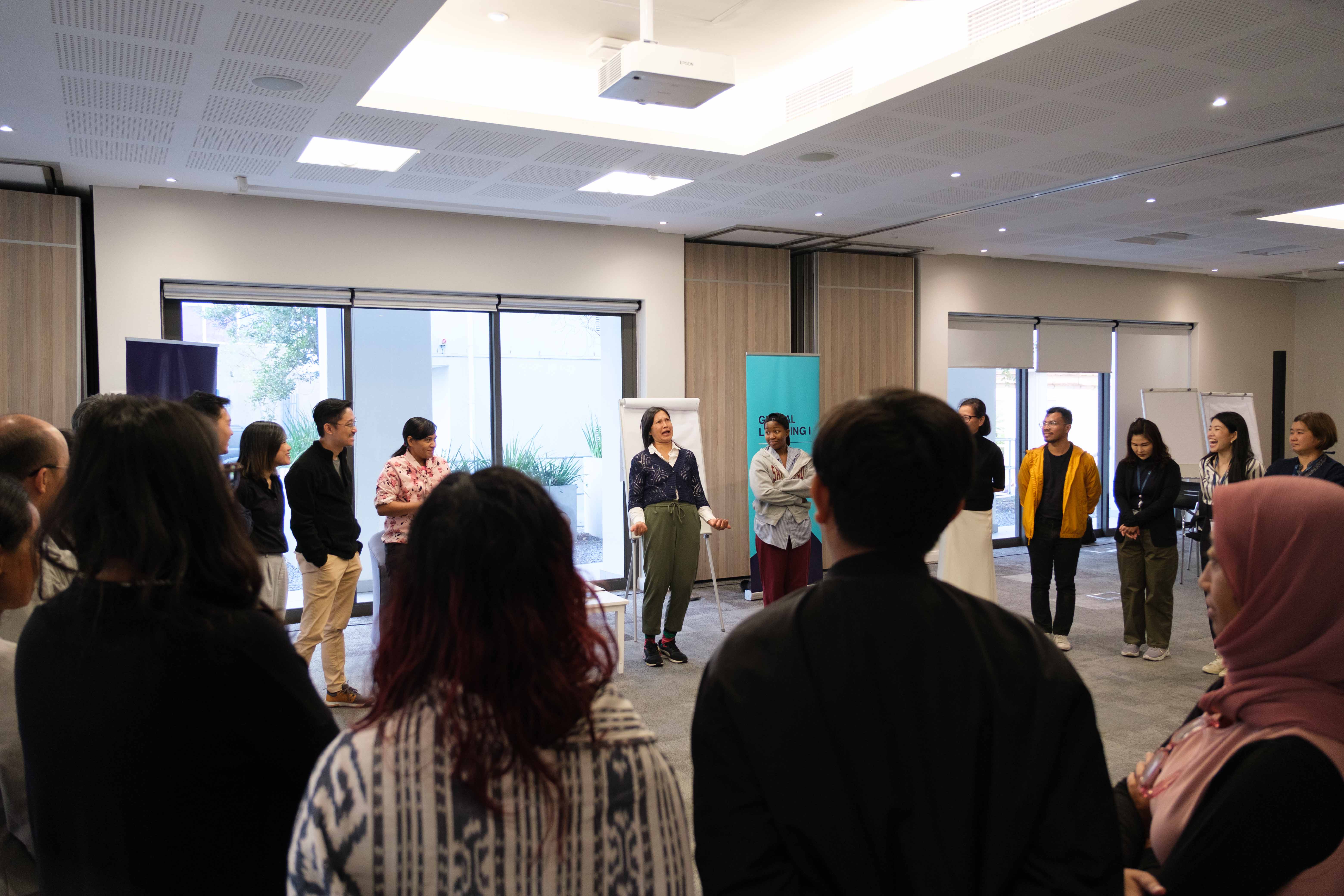
Later in the week, Fellows participated in a Theatre of the Oppressed workshop led by Delia Meyer. The session introduced performance-based methods to analyze power and develop collective responses to systemic challenges. While distinct from conventional formats, the workshop reinforced the need for adaptable, reflective leadership in dynamic social environments. Jonia Lourenca Nunes Brites da Cruz (2025, Timor-Leste) said, “What I loved about this session was the Forum Theatre exercise, where each group presented a real-life story of injustice or oppression through silent expression, limited sound, and full dramatic performance. This approach deepened our understanding of the characters and the power dynamics at play.”
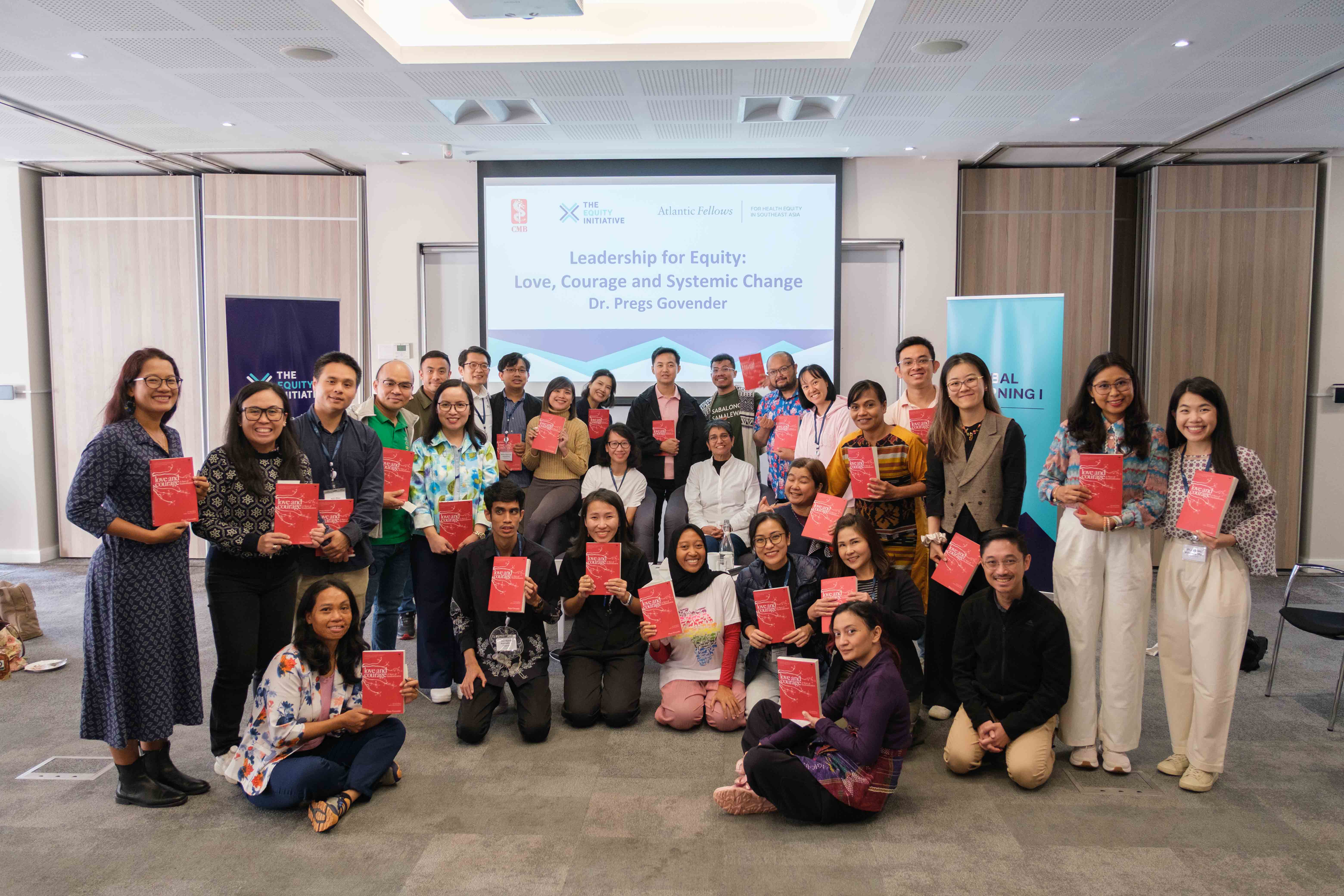
The last speaker of the week, human rights advocate, Dr. Pregs Govender, led a session on ethical leadership. Drawing from her experience in governance and activism, she emphasized the importance of clarity, integrity, and public accountability in advancing social change. Her perspective offered Fellows a framework for navigating complexity without compromising principle. Phua Wee Seng (2025, Singapore) noted, ‘Her sharing (with us) and books she’s written on love as a foundation for courage to activism, and insubordination to injustice, resonates with me because I am stepping forward to advocate and build a support system for the rare disease community out of the love of my son who also has a rare disease.’
The retreat concluded with a farewell dinner alongside other Atlantic Fellows, creating space for cross-program dialogue and shared reflection. These interactions served as a reminder of the broader community of practice that Fellows are part of—one committed to global equity through collaboration, learning, and sustained engagement.
As the program ended, Fellows returned to their work with renewed focus and a more nuanced understanding of the systems they seek to influence. Global Learning I reinforced the Equity Initiative’s conviction that effective leadership for equity must be historically informed, contextually grounded, and guided by a clear sense of purpose. Reflecting on the experience, Phua Wee Seng (2025, Singapore) shared, “Perhaps my most important reflection is that everyone has a history and struggle. However, how can we build a community of activists who believe in humanity and who are willing to not just talk but take action to build a more compassionate and inclusive world collectively?”
